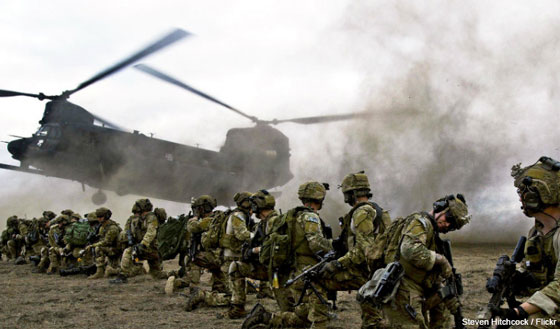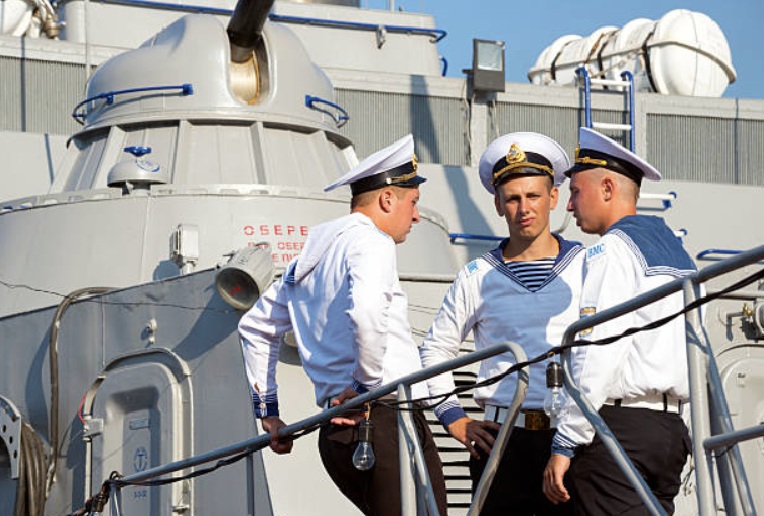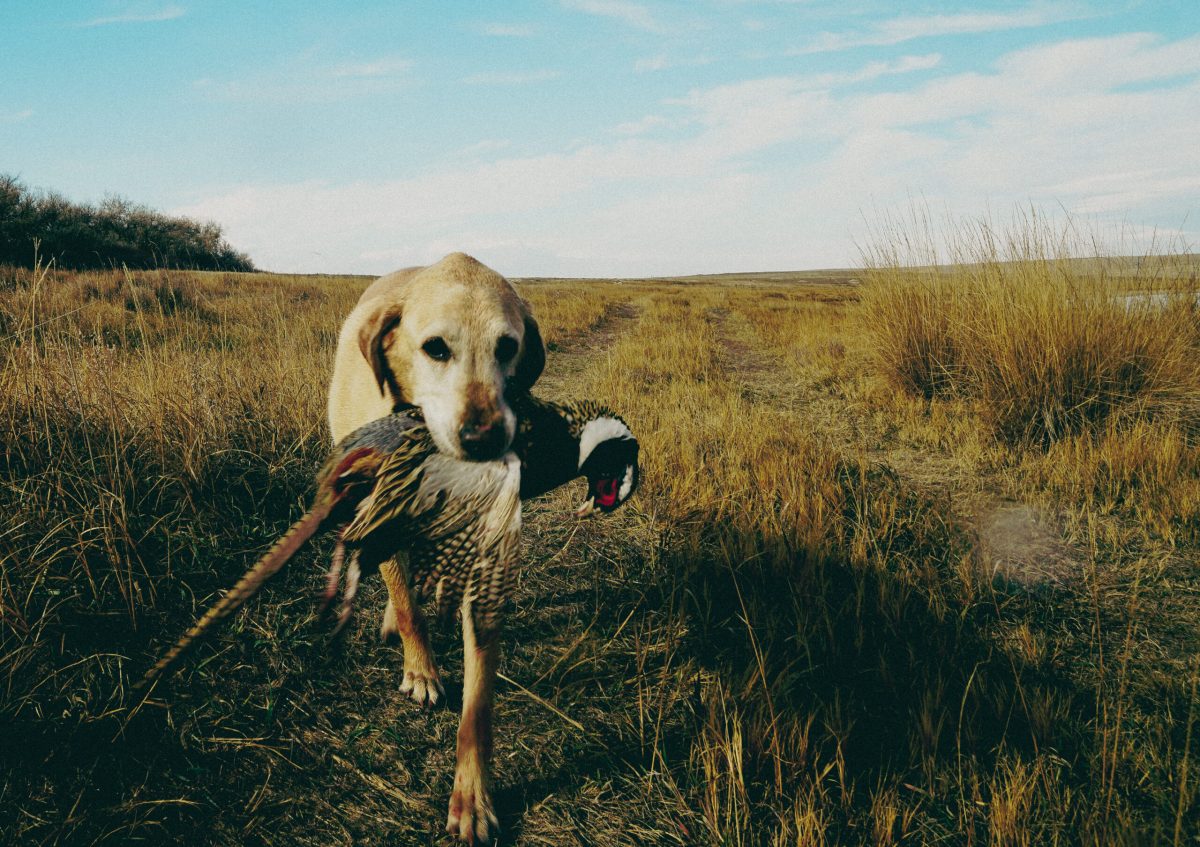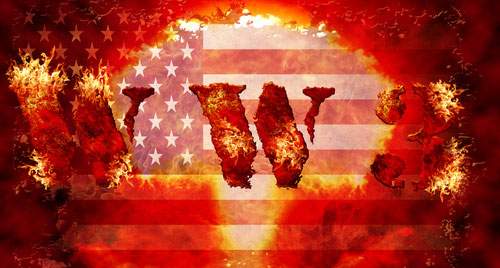We Rented a Forest Service Cabin, and Spent the Trip Battling Problem Bears

This story, “The Three Bears Strike Back,” appeared in the January 1962 issue of Outdoor Life.
The Fourth of July, 1956, turned out to be a slack time at our dude ranch. We’re located on the North Fork of the Blackfoot above Ovando, just south of the Marshall Wilderness Area in western Montana, and we specialize in outfitting and guiding hunters and fishermen on pack trips back into the mountains. We had the usual bunch of guests at that time, but they wanted to take in a local rodeo over the holiday, and that left us two or three days with nothing much to do. My brother Wendell and I had been wrangling dudes all summer. Much as we enjoy our guests and our work, we decided it might be a good idea to get away from the ranch and spend the time in peace and quiet by ourselves.
We knew where we wanted to go. There’s a chunk of roadless wilderness on the upper North Fork, a lazy ride from our ranch, that’s primitive and timbered and beautiful, and the river holes crawl with rainbows and cutthroats. A day’s fishing there, we concluded, would be just what the doctor ordered. As Wendell said later, if we’d known what we were getting into we’d never have made those plans.
We loaded a couple of packhorses with the grub and gear we’d need and rode away from the ranch in mid-morning on July 3. Late in the afternoon we reached the North Fork ranger station, where we intended to camp.
The station is manned only in times of high fire danger, since aircraft now do most of the fire-lookout work in Montana and smokejumpers are the backbone of the fighting crews, back in roadless country. But the ranger cabin is always stocked with grub for fire or other emergencies. The door is locked to make sure the supplies will be there when they’re needed, and the windows are covered with wooden shutters. Hunters and fishermen passing through stop now and then for a look around. Otherwise the station has few visitors.
Since we had no tent along, we decided to camp at the station and use the porch as a shelter in case of rain.
We rode into the little clearing, unsaddled and unpacked, and turned our horses into a nearby meadow where the grass was knee high. When those chores were finished, Wendell walked up to the cabin.
“Come here!” he yelled half a minute later, and from his tone I gathered he wasn’t just looking at the scenery.
That ranger cabin was a shambles. One of the wooden shutters had been ripped from its hinges and the window smashed out. When I put my head inside I discovered all the other windows had also been broken.
The floor was white with flour scattered from one end of the single room to the other. The stove had been overturned, the cupboards torn down. Cans were strewn all over the place, dented and perforated by teeth, most of the contents either sucked out or drained out and lapped up. Directly in front of the shutterless window lay a DDT bug bomb, similarly dented and punctured. “Wish we could have seen the bear’s face when it bit into that,” I chuckled.
Unless you’ve seen a camp that has been worked over by a bear it’s hard to imagine the wreckage and mess they leave behind. They seem to tear things apart as much for deviltry as because they’re hungry. If you can visualize a combination of punctured cans and broken glass, flour and syrup, beans and prunes, all littered and scrambled as if a tornado had gone through the place, you’ll have some idea what that cabin looked like.
We could tell by the tracks that at least two bears, a sow and a cub, had done the mischief, and the longer we looked the more likely it seemed that two cubs were involved. From our standpoint the situation had one saving feature. The tracks of the old lady were not those of a grizzly. If they came back while we were there we’d be dealing with black bears, and it didn’t seem likely they’d give us much trouble. That was just as well, too, for we don’t go loaded for bear on fishing trips. Our artillery this time consisted solely of my handgun, a Smith and Wesson .38 Special.
Wendell went up to the clearing to get a fire going, while I stayed at the river to clean the fish. He hadn’t much more than walked away from me when I heard a loud yell.
We had a couple of hours before sundown, so we put our fly rods together and headed for the river.
The North Fork runs clear and cold and fast in that section, as pretty a stream as I know about, riffling and breaking over gravel bars, swirling deep and green through the holes. By unspoken agreement Wendell and I went straight to our favorite spot, a pool where the water sucked and gurgled around and under a big fallen tree. We knew from other trips there’d be trout there.
Wendell tied on a Black Gnat. I picked a Royal Coachman. I lengthened line and laid my fly at the edge of an eddy just beyond the tree, where it would ride the current down like a flying ant that has wet its wings. But the trout didn’t like it.
Wendell took a 10-inch cutthroat on his Black Gnat, and had the usual lively time with it. He took another and a third, all about the same size, while the whole trout population of the pool continued to ignore my Coachman. So I switched to a Gray Hackle, and on the very first cast a 15-inch rainbow boiled out from under the old tree, sucked the fly down and started home with it.
The fun stayed fast and furious for both of us after that. We worked two other holes and our baskets were sagging with a dozen good fish. By that time the sun was going down and our stomachs were reminding us that there’s more to a fishing trip than just catching trout, so we quit and headed for camp.
Wendell went up to the clearing to get a fire going, while I stayed at the river to clean the fish. He hadn’t much more than walked away from me when I heard a loud yell. I had a hunch what the trouble was. I figured he might need reinforcements without any delay, so I dropped the trout I was gutting and ran for him.
When I came in sight he was waving his arms at the cabin window and three bear heads were sticking out of that shattered opening, one big bear and two little bears. Wendell yelled again and at the same time the old lady saw me loping up. She scrambled out with the cubs at her heels and the three of them went humping for the timber.
“That’s the last we’ll see of them unless they pay us a sneak visit in the night,” I said confidently.
I went back to the river and finished cleaning fish while Wendell got a fire going. He started beans and coffee, and I opened a bag of oats and took a feed down to the meadow for the horses. Back at the fire 10 minutes later, while he was browning a skillet of trout, I looked over my shoulder and saw the three bears walking in, coming for supper.
I suppose it was the smell of food that did it. Whatever the reason, that sow was as brazen a bear as we’d ever encountered, no more afraid of a couple of men than our horses would have been. She ambled up to within a dozen paces, settled down on her fat black rump. She was swinging her head back and forth, sniffing, taking in the fragrance of trout and beans and quite plainly enjoying everything she smelled. The cubs swarmed around her, running a few steps closer to us, then running back, full of hell and itching with curiosity.
“She’s making me nervous,” Wendell complained after a couple of minutes. “I’m not exactly enjoying her company,” I agreed. “Especially with the twins along. What can we do about it?”
Just then the old girl lumbered to her feet, took a few steps to one side where the smelling was better, and sat down again. She didn’t look too friendly.
“Touch off a couple of shots with that cannon of yours,” Wendell suggested.
It proved a good idea. I uncorked two shots in the air. Whatever her contempt for fishermen, the old bear knew gunfire when she heard it. She all but fell over backward, and she and the cubs lit out as if we’d tied firecrackers to their tails.
We finished supper, rolled a couple of extra logs on the fire, and sat around waiting for dark. The sky had turned overcast, and as the last light faded a drizzle or rain began to fall. We moved our outfit onto the cabin porch where it would stay dry, spread our bedrolls, and turned in. The slow patter of rain on the porch roof put us to sleep almost as soon as we crawled into the sacks.
I awoke sometime toward morning, sensing that we had company. I raised my head to look. One of the cubs was poking around at my feet, so close I could have reached down and grabbed a handful of bear fur. Then I saw that he was tearing a slab of bacon out of its wrapper. I knew ma wasn’t far away, and I was careful not to make any sudden motions.
“Wendell,” I called in an urgent undertone, “one of those damned cubs is in our bacon.”
Wendell started to jerk upright in his bedroll, but halfway up I saw him freeze as stiff as a ramrod. When I looked past him, I saw the old lady was standing on the ground right at the edge of the porch, with her nose no more than a foot from Wendell’s ear.
“Yell!” I whispered. “Give it both barrels.”
He nodded agreement, if a man can nod by moving just his eyelashes. We yelled in unison, and put everything we had into it. The bear swiveled around and ran, and the cub we hadn’t seen bolted with her. But the little devil that was eating our bacon never budged, and we didn’t dare to boot him off the porch, much as we ached to, for we knew that one squall from him would bring the big sow storming back to rescue him. That could be real trouble.
“We better get our clothes on,” Wendell warned. “She’ll be back after him the minute she cuffs the other one up a tree.”
I was pulling on a sock when her big black head popped over the edge of the porch, close enough to slap. Her mood had changed now. The hair was standing the wrong way the whole length of her back and a low growl was rumbling up out of her chest.
I had the Smith and Wesson up before I knew I’d reached for it. Over the sights her head looked big as a dishpan, and I was tempted to end the monkey business then and there. She wasn’t more than two feet from the gun and at that range I was confident one slug between the eyes would do it. But an inner voice cautioned, “Not unless you have to; she’s nursing those cubs.”
So I sighted a foot over her ears instead and blasted two shots. She changed ends and ran full tilt, and the cub tagged along.
If she’d had any sense, that would have wound things up. But it didn’t. She was back with both youngsters before we got what was left of the bacon in the pan, and our breakfast that morning was for five, not for two. She came stalking in as if she owned the place, and she was only about 30 feet away when she stopped.
“She wasn’t invited to breakfast,” Wendell growled. “Put the gun on her and cover me. I’m going to send her packing.”
He picked up a rock the size of a baseball and let fly. It hit her in the ribs with a solid whunk, and she jumped aside and backed up a couple of steps. Then she thought better of it and growled. Wendell pitched another stone that glanced off her shoulder. She paid no attention. His next toss missed. Then he hit her on the side of the head and she growled again, louder.
“Rocking her won’t do any good,” I told him. “She isn’t going to leave, and if you stir her up much more we’ll have to kill her.”
We went back to breakfast — flap jacks, bacon, trout, and coffee — and all the while we cooked and ate, the three bears padded around or stood in the brush and watched us. They were never farther than 50 feet from our fire, and two or three times the old gid led the cubs in within four or five paces. She didn’t growl or show any hostility, but l kept the gun handy and the meal wasn’t much fun.
“Do you remember the movie about the man who came to dinner?” I asked my brother.
“Yeah, I remember,” he said with a dry grin, “and I get the point. They couldn’t get rid of him, either.”
Unless we could drive the bears off, our fishing trip was at an end. The minute we turned our backs to start for the river, all three of ’em would be in our groceries up to their ears.
We discussed two or three possibilities. “Let’s coax ’em into the cabin with some grub and lock ’em in,” I suggested.
He picked up a rock the size of a baseball and let fly. It hit her in the ribs with a solid whunk, and she jumped aside and backed up a couple of steps. Then she thought better of it and growled.
We talked about putting all our stuff in the cabin and nailing the shutter up, but we both knew that wouldn’t work. She’d have the shutter off again before we could get to the river. I looked wishfully at my .38, but somehow I couldn’t bring myself to use it, knowing the cubs would likely starve.
Finally we hit on a solution. A log bridge for pack and saddle horses spanned the river a short distance downstream from the station. The water there was swift and deep enough so that a bear would have to swim. We could hang our packs under the bridge in midstream and there was no way the old girl could get at them.
We did that, and the arrangement looked bearproof, so we went fishing. Neither of us ever enjoyed a morning on a stream more. By noon we had our limit of rainbows and cutthroats and were ready to quit.
The bears were nowhere in sight when we got back to the station and our packs hadn’t been molested. But the one item we’d left exposed, the bag of oats for the horses, had been lugged off. The old bear had torn a hole in the sack and left a plain trail of spilled grain. I tracked her up the mountain about a quarter of a mile and found and retrieved what was left. We figured that ended the bear encounter. But we were wrong again.
We were getting ready to saddle up when our old pack mare let out a startled snort and began to roll her eyes back toward the timber. “Guess who’s coming,” Wendell muttered. I knew before I looked.
The bear family came to the edge of the brush and stood watching our preparations, and for the next half hour they were nothing but trouble, keeping our horses on edge and making nuisances of themselves generally. Finally Wendell and I made a determined run for them, yelling at the top of our voices, and I emphasized what we were saying with a couple of shots from the.38. The cubs scratched their way up a big fir tree, and to our surprise and relief the sow followed. We kept up enough commotion to hold them in the tree until we had all our gear packed and were ready to leave.
We hated to leave the ranger cabin to them, but there wasn’t much more damage they could do, and we knew it would be useless to fasten the shutter back in place. Once a bear has broken into a place and found food, he’ll tear the roof off, if necessary, to get in again. We finally agreed to leave the problem to the Forest Service.
We reported the affair to the ranger station at Seeley Lake when we got home, and the rangers rode in and nailed the cabin up. But it did no good, and before the summer was over we heard they finally shot the old pest to end her marauding. By that time, however, the cubs were big enough to shift for themselves.
Read Next: I Was 10 Feet from the Bear I’d Been Tracking All Day. Then My Rifle Jammed
As we rode from the clearing that afternoon Wendell turned in his saddle for a last look at the three bears, perched high in the fir. “Nice restful vacation we had” he grumbled sourly. “If I’d known what was going to happen, I’d have gone to the rodeo and tried riding a Brahma bull instead.”
“Not me,” I said. “I’d just have brought a camera along.” I’d still like to back up to somebody and get them to kick me good and hard for not having one with me on that trip.
Read the full article here









